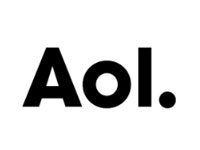Best Debt Consolidation Companies 2021
Looking for a loan?
Get up to $100,000 and an APR of 3.9%.
Get a personal loan offer in minutes.
This is a FREE service and won't affect your credit score.

Debt Settlement
Debt settlement is one method to alleviate yourself of debt. In a debt settlement, a debt relief agency contacts your creditors and offers them a reduced amount to resolve the entire debt. Agencies often tell creditors that their clients might just file for bankruptcy if they do not accept the settlement offer, so they take the bait and you are off the hook with at least $10,000 less than what you originally owed.
Debt settlement companies will ask you to cease payments on your bills and to make single monthly payments to them, instead. In turn, your accounts become delinquent, and the debt settlement agency negotiates with a settlement offer on your behalf.
The debt settlement company collects your payments for the meantime and stockpiles them along with a fee so it can use your payments as a bargaining chip in due time.
Because credit card companies collect overdue bills aggressively, you can expect to get a lot of badgering calls from debt collectors within the period where your debt settlement company is still collecting the fees. The credit card company will then write off the debt and sell it to a collection agency for lesser than what it is after 180 days. Your debt settlement company will then negotiate with the collection agency to settle the bill entirely.
The downside to this is that there is no guarantee that the creditor will agree to settle while your late fees, penalties, and dented credit score continue to pile up until a settlement is agreed upon.
Quick debt relief solution
Your selected debt settlement agency deals with creditors/collectors on your behalf
Your creditors/collectors might be opposed to settling
Late fees and penalties accumulate
The 180-payment default will harm your credit score
Debt Consolidation
Debt consolidation is the method of unifying several debts into a single monthly payment. There are many different ways of consolidating debts, but each one of them leads to the ultimate goal of decreasing your monthly payments through reduced interest rates. Most debt consolidation programs have a term of 3 to 5 years and help you streamline your finances so you can keep up with several debts that have varying due dates.
The debt consolidation program was designed to promote a more abridged payment option through single monthly payments, faster debt repayment, and reduced interest rates. Conventionally, the debt consolidation program meant taking out one huge loan and using that loan to pay off several of your smaller debts, an effective approach if you have a spotless payment history and a high credit ranking. Otherwise, you might only get approved for a loan with a high-interest rate.

In any case, you still have the option to consolidate your debts through a debt management plan sans a loan. Debt management plans are offered by nonprofit credit counseling agencies without using credit scores as a basis for approvals. Your debts will still be merged into a single monthly payment, however, your credit counseling agency will work with your creditors to lower your interest rates so you can minimize your monthly payments.
Debt consolidation programs are essentially used to settle unsecured debts such as credit card debts, unsecured loans, medical debt, payday loans, collection accounts, and past-due utility bills. Secured debts such as automobiles, homes, and properties are not eligible for debt consolidation programs but may be refinanced.
Enrolling in a debt consolidation plan will stop calls from collection agencies.
Lower interest rates, reduced monthly premiums, and simplified payments.
Credit cards are not allowed, however, some agencies are flexible on keeping an “emergency” credit card.
The interest rate is dependent on your credit score, which could be substantially low due to credit card debt.

Personal Loans
A personal loan is borrowing money from funding agencies such as banks, online lenders, or credit unions. Unlike other types of loans that have specific purposes or labels attached to it (such as a housing loan or an auto loan), a personal loan can be used by just about anything. You can apply for a personal loan to purchase a new house, renovate your home, buy a new car, pay for your wedding, or to consolidate your debts –take your pick.
Personal loans are typically paid back in fixed monthly installments over 2-7 years with APRs ranging from 6% to 35%. However, rates on personal loans are relatively cheaper and come with higher borrowing limits compared to those of credit cards.
As with all other loans, personal loans are usually approved based on credit score, debt-income ratio, and credit reports. Consumers who maintain an outstanding credit typically get the lowest APR while those with scores 600 below get a higher rate.
It has a more favorable interest rate.
May be used to consolidate debt.
It can be used according to what you need your funds for.
Has fixed payments that are required to be paid back on time.
It usually involves an origination fee.
Bankruptcy
Bankruptcy is a legal proceeding where a judge and a court trustee evaluate the assets and liabilities of a person or a business that is unable to repay outstanding debts and a decision is made on whether the debts are to be discharged and that the debtor is no longer legally bound to pay them.
The bankruptcy process starts with a petition filed by the debtor or on behalf of a creditor. Bankruptcy laws were made to give individuals a chance to start a clean slate in the event of a financial flop. People or businesses who file for bankruptcy usually perceive their debts to be higher than the actual on-hand funds that they have and do not see the situation changing anytime soon.
While bankruptcy can be a chance to start over and is a plausible solution to preventing foreclosures, repossessions, or debt collection, it can also cause a huge dent to your credit and future economic opportunities and carries some significant long-term fines that will stay on your credit report for at least 7-10 years.

The general rule of thumb is that, if you think that you won’t be able to settle all of your debts in the next five years, bankruptcy might be the best route for you. However, if you feel that you’re financial slump can still be salvaged with a little help, you might want to consider other debt-relief options such as debt consolidation programs.
You can start with a clean slate.
Eases the tensions of your debt problems and will stop collectors from badgering you.
It can cause a major dent on your credit score
It can completely block you off from future loans and investments.
Debt Consolidation without a Loan
You do not need to take out another loan to consolidate your debt. Most credit counseling firms have debt consolidation options through a debt management program without the need to take out a loan. In cases like this, the nonprofit counseling agency negotiates with card companies to lower the interest rate and monthly payments to make it more viable for the consumer to pay off.
The consumer sends a monthly payment to the credit counseling agency, which then distributes the money to each creditor in an agreed-upon amount. The agency may also get the card companies to waive late fees or over-the-limit fees.
This is not a quick solution. Debt management programs usually take 3-5 years to eliminate debt. If you miss a payment, they can revoke whatever concessions were made on your interest rate and monthly payment.
Is Debt Consolidation for Me?
If you feel that you’ve reached the pinnacle of anxiety in dealing with several loans and debts and you want to restructure your finances while slowly becoming economically free, then yes, debt consolidation would be the best program for you.
Credit can seem like a good thing when it allows you to buy things now while paying for it in the future. However, the payment part can pose a challenge to many. Sooner or later, you'll realize that you want to be responsible for your finances and do away with credit card dependence.
Having a compact and preemptive plan will help you attain financial independence. Debt consolidation can be that plan for you. It gives you the option to reach your goal and simplify your bills.
What is Debt Settlement?
Debt settlement is when a borrower negotiates with a lender to pay off the entire debt in a lump sum payment that is lower than the actual amount being owed. An example of this is when you negotiate to pay off an entire loan of $25,000 for just $15,000.
Some creditors agree on a settlement when they see that the borrower is unable to make ends meet and the risks of them not being able to pay off the entire debt is higher. Ultimately, credit agencies will try to avoid bigger losses while protecting their financial bottom line.
How Does Debt Settlement Work?
Debt settlement can be a viable option for you if you’ve had countless skipped payments and your account has been submitted to collections. However, a creditor or a collector will not be open to settling your loan if they believe that you can pay the full amount.
A debt settlement company helps you negotiate with creditors to succumb to settling the loan, this is usually a possible option for unsecured debts such as credit cards. Debt settlement, however, does not work for home or auto mortgages as these can be foreclosed or repossessed.
Debt Consolidation vs. Debt Settlement
Debt consolidation and debt settlement are both financial plans that help ease the load of debt off your shoulders. However, it is important to note that each program differs in function and in tackling the issue. At a very fundamental level, debt settlement is beneficial when it comes to lowering down the total amount of debt being owed. Debt consolidation, on the other hand, is for decreasing the overall number of creditors you owe. However, secondary benefits, in particular debt restructuring, may be provided by either approach.
Key Points to Consider:
Criteria for Choosing the Best Debt Relief Company
Determining which type of debt relief works best for you is the most important factor to consider in selecting a debt relief company as the approaches that function for each program vary for every consumer. If you wish to try out debt consolidation, debt management services or DIY, a non-profit credit service firm would be the starting point. Let your advisors offer you some free budgeting advice and solutions to the problem.
Some of the things you want to look for with the credit counseling agency include:
-
Figure out what kind of debt the credit company works with. Many will deal with credit card debt, but some may also deal with student loans or medical debt.
-
Check on customer reviews for feedback on the agency’s programs and services.
-
Visit the company’s website to check on their charges and requirement.
-
Check on the options available if you can’t afford to pay the fees.
-
Ask if they have a minimum or maximum amount of debt required.
-
Verify the loan term and how long it should take to get out of debt.
What are the requirements for debt consolidation?
Generally, most creditors need you to be 18 or above and lawfully living in the United States with a credible bank account and not in the state of bankruptcy or foreclosure.
Borrowers with outstanding credit and low debt-to-income ratios may be eligible for low-end creditor interest rates. Most lenders claim a DTI of 40 percent or less for borrowers.
Those with poor or good credit may have a personal loan that is unsecured based on a steady income and low debt rates, but they should expect a higher rate of interest. The average rate of personal loans is 36% higher.
Many creditors claim that they do not need a minimum credit score, however, that does not mean that they do not review your credit report. You can set goals by knowing your credit profile before applying. Several websites for personal financing provide free access to your account and credit score. Search for an instructional site that offers guidance on how to create credit, including a credit score simulator and guidance.
How to Apply for a Debt Consolidation Loan
If you’ve decided that debt consolidation is the best option for you, consolidating through a personal loan means paying off high-interest debts. Simplify your payments and reduce your debt more quickly. Here are five stepladders for applying for a personal loan for debt consolidation:













